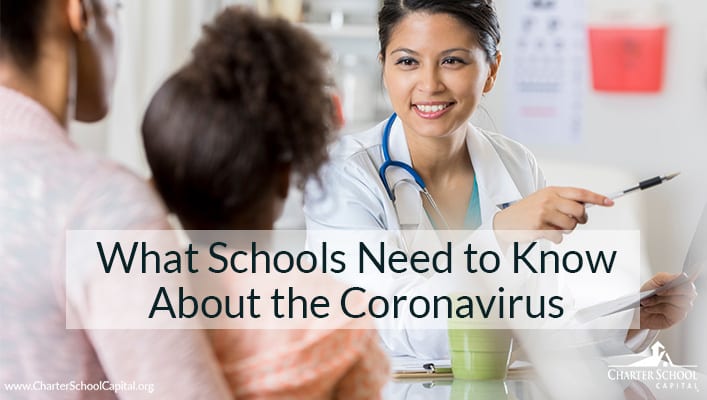 What Schools Need to Know About the Coronavirus
What Schools Need to Know About the Coronavirus
Editor’s note: As the news of the Coronavirus heats up, we felt that it was important to help disseminate accurate and pertinent information to our school communities. Because we understand the tremendous impact it may soon have on schools across the country, we wanted to get the message out to reinforce the best practice prevention recommendations published by the CDC. The information in this blog post was taken directly from the Centers for Disease Control. This interim guidance is based on what is currently known about the transmission and severity of coronavirus disease 2019 (COVID-19).
The US Centers for Disease Control and Prevention (CDC) will update this guidance as needed and as additional information becomes available. Please check the following CDC website periodically for updated interim guidance: https://www.cdc.gov/coronavirus/2019-ncov/index.html.
Who is this guidance for?
This interim guidance is intended to help administrators of public and private childcare programs and K-12 schools prevent the spread of COVID-19 among students and staff. Administrators are individuals who oversee the daily operations of childcare programs and K-12 schools, and may include positions like childcare program directors, school district superintendents, principals, and assistant principals. This guidance is intended for administrators at both the school/facility and district level.
Why is this guidance being issued?
Information provided should help childcare programs, schools, and their partners understand how to help prevent the transmission of COVID-19 within childcare and school communities and facilities. It also aims to help childcare programs, schools, and partners to react quickly should a case be identified. The guidance includes considerations to help administrators plan for the continuity of teaching and learning if there is community spread of COVID-19.
What is the role of schools in responding to COVID-19?
COVID-19 is a respiratory illness caused by a novel (new) virus, and we are learning more about it every day. There is currently no vaccine to protect against COVID-19. At this point, the best way to prevent infection is to avoid being exposed to the virus that causes it. Stopping transmission (spread) of the virus through everyday practices is the best way to keep people healthy. More information on COVID-19 is available here.
Schools, working together with local health departments, have an important role in slowing the spread of diseases to help ensure students have safe and healthy learning environments. Schools serve students, staff, and visitors from throughout the community. All of these people may have close contact in the school setting, often sharing spaces, equipment, and supplies.
Guidance for schools which do not have COVID-19 identified in their community
To prepare for possible community transmission of COVID-19, the most important thing for schools to do now is plan and prepare. As the global outbreak evolves, schools should prepare for the possibility of community-level outbreaks. Schools want to be ready if COVID-19 does appear in their communities.
Childcare and K-12 school administrators nationwide can take steps to help stop or slow the spread of respiratory infectious diseases, including COVID-19:
-
-
- Review, update, and implement emergency operations plans (EOPs). This should be done in collaboration with local health departments and other relevant partners. Focus on the components, or annexes, of the plans that address infectious disease outbreaks.
- Ensure the plan includes strategies to reduce the spread of a wide variety of infectious diseases (e.g., seasonal influenza). Effective strategies build on everyday school policies and practices.
- Ensure the plan emphasizes common-sense preventive actions for students and staff. For example, emphasize actions such as staying home when sick; appropriately covering coughs and sneezes; cleaning frequently touched surfaces; and washing hands often.
- Ensure handwashing strategies include washing with soap and water for at least 20 seconds or using a hand sanitizer that contains at least 60% alcohol if soap and water are not available.
- Reference key resources while reviewing, updating, and implementing the EOP:
- Develop information-sharing systems with partners.
- Information-sharing systems can be used for day-to-day reporting (on information such as changes in absenteeism) and disease surveillance efforts to detect and respond to an outbreak.
- Local health officials should be a key partner in information sharing.
- Monitor and plan for absenteeism.
- Review the usual absenteeism patterns at your school among both students and staff.
- Alert local health officials about large increases in student and staff absenteeism, particularly if absences appear due to respiratory illnesses (like the common cold or the “flu,” which have symptoms similar to symptoms of COVID-19).
- Review attendance and sick leave policies. Encourage students and staff to stay home when sick. Use flexibility, when possible, to allow staff to stay home to care for sick family members.
- Discourage the use of perfect attendance awards and incentives.
- Identify critical job functions and positions, and plan for alternative coverage by cross-training staff.
- Determine what level of absenteeism will disrupt continuity of teaching and learning.
- Establish procedures for students and staff who are sick at school.
- Establish procedures to ensure students and staff who become sick at school or arrive at school sick are sent home as soon as possible.
- Keep sick students and staff separate from well students and staff until they can leave.
- Remember that schools are not expected to screen students or staff to identify cases of COVID-19. The majority of respiratory illnesses are not COVID-19. If a community (or more specifically, a school) has cases of COVID-19, local health officials will help identify those individuals and will follow up on next steps.
- Share resources with the school community to help families understand when to keep children home. This guidance, not specific to COVID-19, from the American Academy of Pediatrics can be helpful for families.
- Perform routine environmental cleaning.
- Routinely clean frequently touched surfaces (e.g., doorknobs, light switches, countertops) with the cleaners typically used. Use all cleaning products according to the directions on the label.
- Provide disposable wipes so that commonly used surfaces (e.g., keyboards, desks, remote controls) can be wiped down by students and staff before each use.
- Create communications plans for use with the school community.
- Include strategies for sharing information with staff, students, and their families.
- Include information about steps being taken by the school or childcare facility to prepare, and how additional information will be shared.
- Review CDC’s guidance for businesses and employers.
- Review this CDC guidance to identify any additional strategies the school can use, given its role as an employer.
Childcare and K-12 administrators can also support their school community by sharing resources with students (if resources are age-appropriate), their families, and staff. Coordinate with local health officials to determine what type of information might be best to share with the school community. Consider sharing the following fact sheets and information sources:
- Information about COVID-19 available through state and local health departments
- General CDC fact sheets to help staff and students’ families understand COVID-19 and the steps they can take to protect themselves:
- CDC Information on COVID-19 and children
- CDC information for staff, students, and their families who have recently traveled back to the United States from areas where CDC has identified community spread of coronavirus:
For questions about students who plan to travel, or have recently traveled, to areas with community spread of COVID-19, refer to CDC’s FAQ for travelers. Schools can also consult with state and local health officials. Schools may need to postpone or cancel trips that could expose students and staff to potential community spread of COVID-19. Students returning from travel to areas with community spread of COVID-19 must follow guidance they have received from health officials. COVID-19 information for travel is updated regularly on the CDC website.
Guidance for schools with identified cases of COVID-19 in their community
If local health officials report that there are cases of COVID-19 in the community, schools may need to take additional steps in response to prevent spread in the school. The first step for schools in this situation is to talk with local health officials. The guidance provided here is based on current knowledge of COVID-19. As additional information becomes available about the virus, how it spreads, and how severe it is, this guidance may be updated. Administrators are encouraged to work closely with local health officials to determine a course of action for their childcare programs or schools.
Determine if, when, and for how long childcare programs or schools may need to be dismissed.
Temporarily dismissing childcare programs and K-12 schools is a strategy to stop or slow the further spread of COVID-19 in communities. During school dismissals, childcare programs and schools may stay open for staff members (unless ill) while students stay home. Keeping facilities open a) allows teachers to develop and deliver lessons and materials remotely, thus maintaining continuity of teaching and learning; and b) allows other staff members to continue to provide services and help with additional response efforts.
Childcare and school administrators should work in close collaboration and coordination with local health officials to make dismissal and large event cancellation decisions. Schools are not expected to make decisions about dismissal or canceling events on their own. Schools can seek specific guidance from local health officials to determine if, when, and for how long to take these steps. Large event cancellations or school dismissals*** may be recommended for 14 days, or possibly longer if advised by local health officials. The nature of these actions (e.g., geographic scope, duration) may change as the local outbreak situation evolves.
If an ill student or staff member attended school prior to being confirmed as a COVID-19 case:
- Local health officials may recommend temporary school dismissals if a student or staff member attended school prior to being confirmed as a COVID-19 case. Local health officials’ recommendations for the scope (e.g., a single school, a full district) and duration of school dismissals will be made on a case-by-case basis based on the most up-to-date information about COVID-19 and the specific cases in the impacted community.
- Schools should work with the local health department and other relevant leadership to communicate the possible COVID-19 exposure. This communication to the school community should align with the communication plan in the school’s emergency operations plan. In such a circumstance, it is critical to maintain confidentiality of the student or staff member as required by the Americans with Disabilities Act and the Family Education Rights and Privacy Act.
- If a student or staff member has been identified with COVID-19, school and program administrators should seek guidance from local health officials to determine when students and staff should return to schools and what additional steps are needed for the school community. In addition, students and staff who are well but are taking care of or share a home with someone with a case of COVID-19 should follow instructions from local health officials to determine when to return to school.
If schools are dismissed, schools can consider the following steps:
- Temporarily cancel extracurricular group activities and large events.
-
- Cancel or postpone events such as after-school assemblies and pep rallies, field trips, and sporting events.
- Discourage students and staff from gathering or socializing anywhere.
-
- Discourage gatherings at places like a friend’s house, a favorite restaurant, or the local shopping mall.
- Ensure continuity of education.
-
- Review continuity plans, including plans for the continuity of teaching and learning. Implement e-learning plans, including digital and distance learning options as feasible and appropriate.
- Determine, in consultation with school district officials or other relevant state or local partners:
- If a waiver is needed for state requirements of a minimum number of in-person instructional hours or school days (seat time) as a condition for funding;
- How to convert face-to-face lessons into online lessons and how to train teachers to do so;
- How to triage technical issues if faced with limited IT support and staff;
- How to encourage appropriate adult supervision while children are using distance learning approaches; and
- How to deal with the potential lack of students’ access to computers and the Internet at home.
- Ensure continuity of meal programs.
-
- Consider ways to distribute food to students.
- If there is community spread of COVID-19, design strategies to avoid distribution in settings where people might gather in a group or crowd. Consider options such as “grab-and-go” bagged lunches or meal delivery.
- Consider alternatives for providing essential medical and social services for students.
-
- Continue providing necessary services for children with special healthcare needs, or work with the state Title V Children and Youth with Special Health Care Needs (CYSHCN) Program.
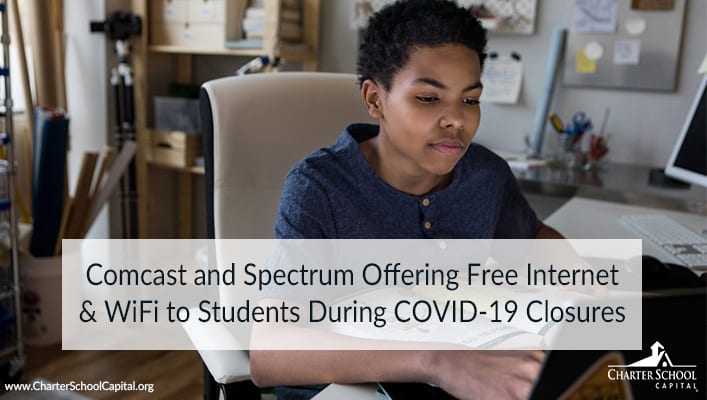
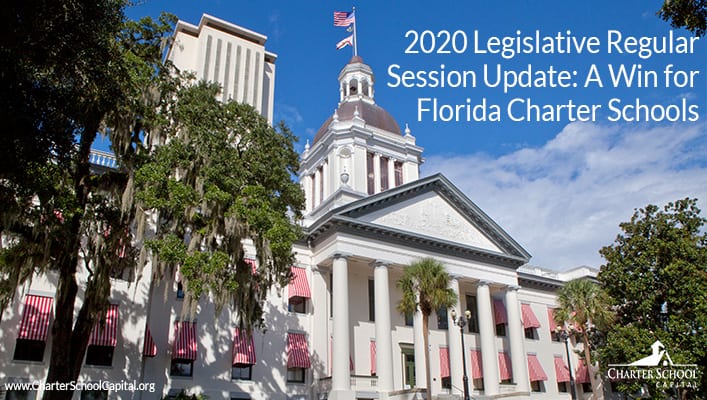 2020 Legislative Regular Session Update: A Win for Florida Charter Schools
2020 Legislative Regular Session Update: A Win for Florida Charter Schools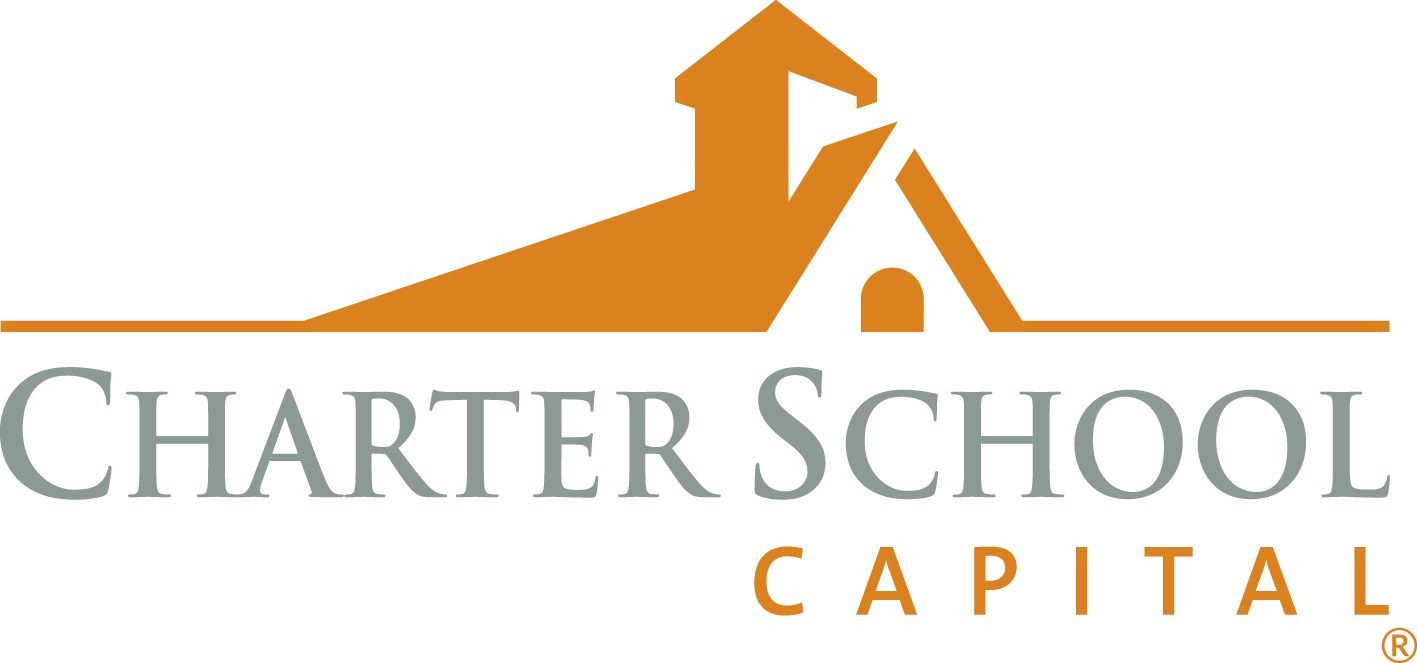
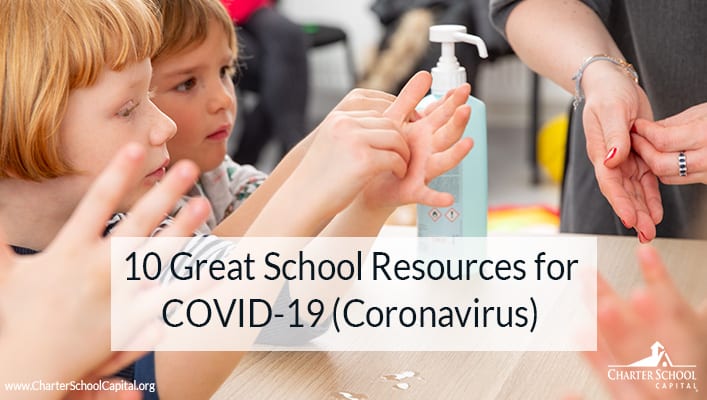 10 Great School Resources for COVID-19 (Coronavirus)
10 Great School Resources for COVID-19 (Coronavirus)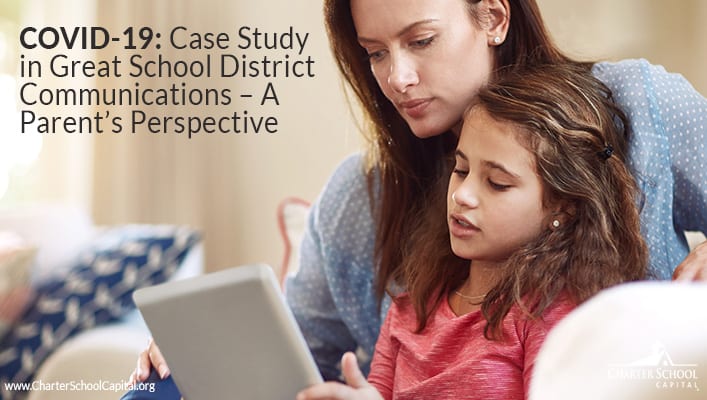 COVID-19: Case Study in Great School District Communications – A Parent’s Perspective
COVID-19: Case Study in Great School District Communications – A Parent’s Perspective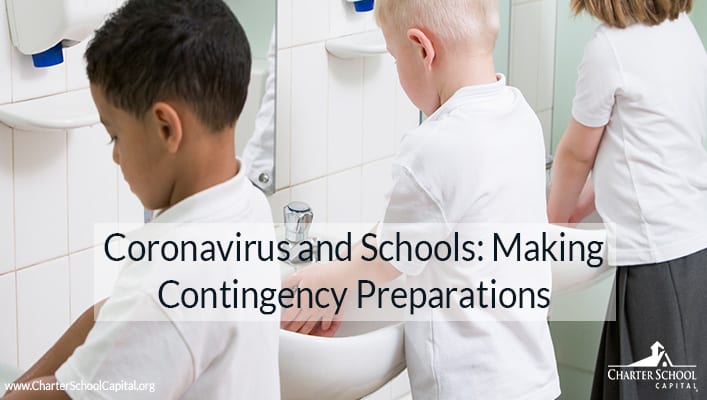 Coronavirus and Schools: Making Contingency Preparations
Coronavirus and Schools: Making Contingency Preparations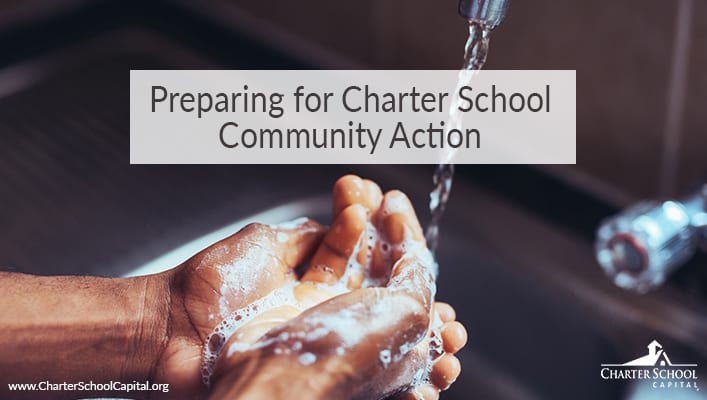 Preparing for Charter School Community Action
Preparing for Charter School Community Action 27th Annual California Charter Schools Conference
27th Annual California Charter Schools Conference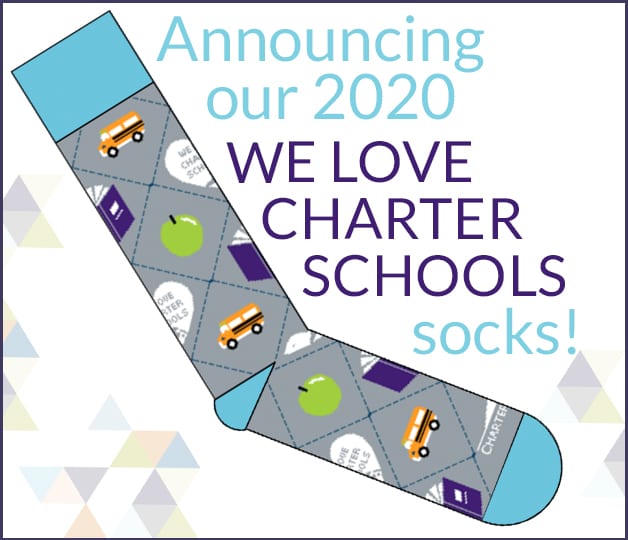
 The 2020 Charter School Honor Roll is Now Open for Submissions
The 2020 Charter School Honor Roll is Now Open for Submissions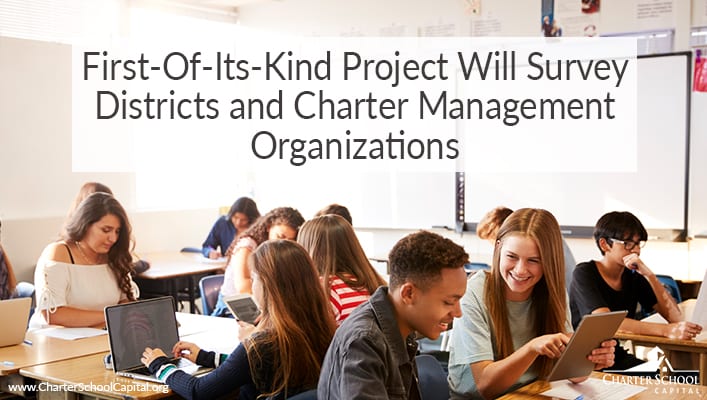
 What Schools Need to Know About the Coronavirus
What Schools Need to Know About the Coronavirus